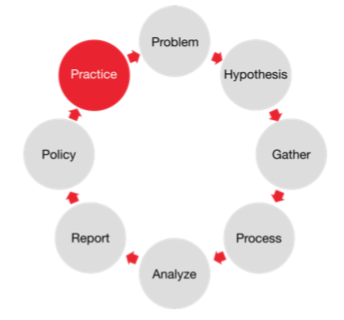
Modifying educational practice as a result of learning research can take at least two distinct forms. On the one hand, in those cases where instruction is being delivered by automated digital learning systems, it will be possible for such systems to adapt the instructional process (sequence, content, error detection, etc.) based on earlier experience. Such adaptive technologies might function by adapting instruction in general based on results of research on relevant populations of learners and/or it might function by adapting instruction for an individual learner based on the results of the prior experiences of that learner.
Although the direct adaptation of instruction via automated digital instructional systems is the most certain way to influence educational practice, educational change may be influenced in other less direct ways. For example, the sequence of educational research activities culminating in a policy change might trigger changes in the training of educators to lead them to change their instructional practices. Such training could be accomplished in face-to-face professional development and/or via digital learning systems for the professional development of teachers and administrators.


Be the first to comment